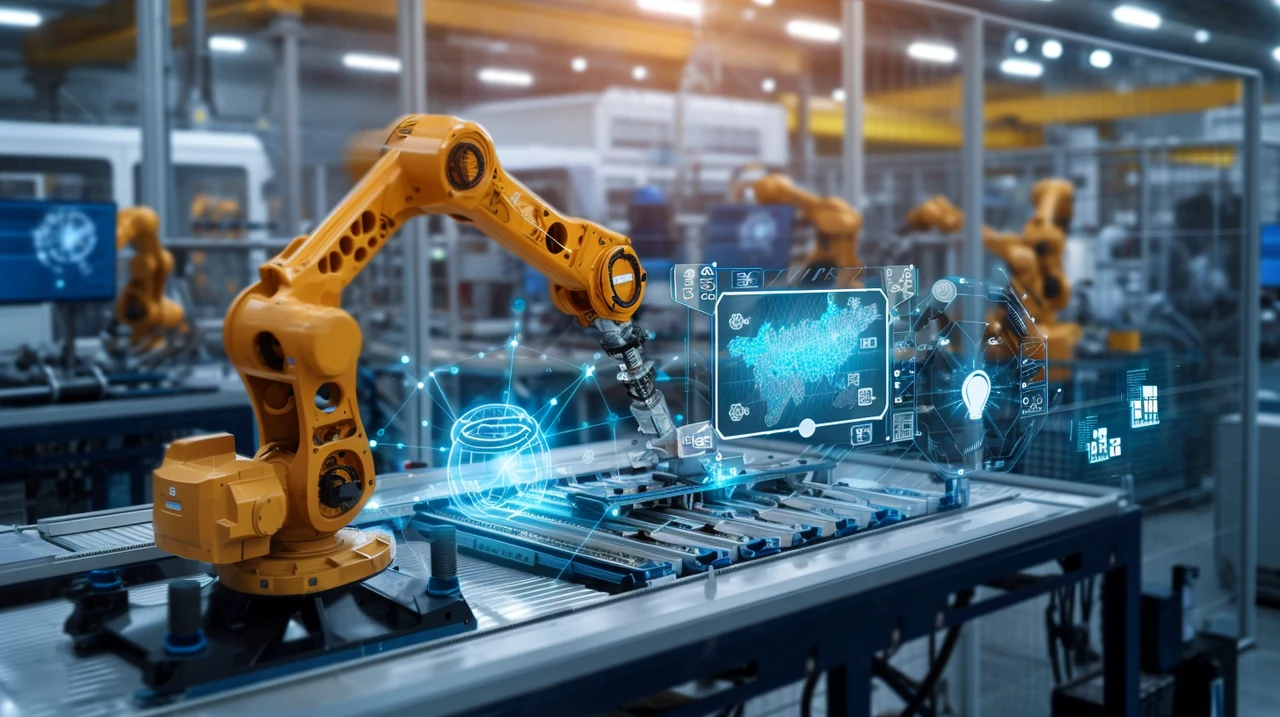
The development team at Factory AI is harnessing the power of autonomous AI systems, known as droids, to automate the entire software development lifecycle. By delegating tasks ranging from ideation to coding, testing, and documentation to these intelligent machines, Factory AI aims to significantly reduce human cognitive load and minimize error rates. With a focus on enterprise-level clients, this innovative approach promises to deliver enhanced efficiency and accuracy in software development. Watch the video below kindly created by Wes Roth to learn more about the future of software engineering and AI autonomy with AI-powered systems called Droids.
Machines building Machines
At the core of Factory AI’s transformative approach are autonomous AI systems, or droids. These sophisticated entities leverage the latest advancements in machine learning and advanced algorithms to automate various aspects of software development. From the initial stages of idea generation to the final deployment of the software product, these droids work tirelessly to streamline and optimize the development process. By minimizing the need for human intervention, Factory AI is paving the way for a new era of software engineering where machines take on increasingly complex tasks.

Automating the Development Lifecycle
One of the key strengths of Factory AI’s approach is the comprehensive automation of the software development lifecycle. This includes all stages, from planning and coding to testing and maintenance. By leveraging the capabilities of autonomous AI systems, each phase of the development process is executed with unparalleled precision and speed. This holistic automation not only reduces the time and effort required to bring software products to market but also ensures a higher level of consistency and quality throughout the development cycle.
- Task Delegation: Factory AI’s droids excel at automating repetitive and tedious tasks, such as code migrations and refactors. By delegating these time-consuming tasks to AI systems, human developers are freed up to focus on more creative and strategic aspects of software development. This optimized allocation of resources leads to enhanced productivity and allows developers to tackle more complex challenges.
- Unit Testing: Automated testing is a critical component of Factory AI’s approach, with a particular emphasis on unit testing. The droids generate and execute comprehensive unit tests, carefully identifying and addressing potential issues before they have a chance to escalate. This proactive approach to quality assurance minimizes the occurrence of bugs and ensures that the resulting software is robust and reliable.
- Code Review: AI-assisted code review is another innovative advancement introduced by Factory AI. These intelligent systems analyze code for potential errors, suggest improvements, and even autonomously fix bugs. By integrating these capabilities into continuous integration (CI) processes, Factory AI enables self-healing systems that automatically resolve integration issues, ensuring seamless development workflows.
The Rise of Autonomous AI Systems
Here are a selection of other articles from our extensive library of content you may find of interest on the subject of AI automation :
Streamlining Project Management and Documentation
Factory AI’s autonomous AI systems extend beyond the realm of coding and testing. They also transform project management and documentation processes. Automated project management tools, powered by AI, streamline project planning, ticket descriptions, and task prioritization. These systems ensure that projects stay on track, deadlines are met, and resources are optimally allocated. By automating these administrative tasks, teams can focus their energy on delivering high-quality software.
Real-time documentation and knowledge sharing are also assistd by AI-driven systems. These tools automatically generate and update documentation, ensuring that all team members have access to the latest information. This seamless collaboration and centralized knowledge management reduce the time spent on manual documentation tasks and foster a more efficient and effective development environment.
The Broader Impact of AI in Software Engineering
The impact of Factory AI’s autonomous AI systems extends far beyond the realm of software development. Industries such as finance, healthcare, and general project management can also benefit from the adoption of AI-driven automation. By leveraging these innovative technologies, organizations across various sectors can achieve greater efficiency, accuracy, and innovation in their respective fields.
Looking ahead, the future of software engineering lies in the automation of AI research itself. As AI systems become increasingly sophisticated, they will take on even more complex tasks, including the development and optimization of other AI systems. This self-perpetuating cycle of AI advancement will lead to groundbreaking discoveries and innovations, propelling the field of software engineering to new heights.
- Evolving Human Roles: As AI systems take on more responsibilities, the role of human developers is undergoing a significant shift. Rather than focusing on individual coding tasks, developers will increasingly take on the role of orchestrators and managers of AI systems. This transition requires a new set of skills and a strategic mindset, as developers leverage AI to achieve greater impact and drive innovation.
- Market Trends and Investment: The market for AI-driven automation solutions is experiencing rapid growth, with organizations recognizing the immense potential of these technologies to transform their operations and gain a competitive edge. As a result, there is a surge in investment and interest in AI systems that specifically target efficiency and accuracy improvements in software development.
Factory AI’s autonomous AI systems are at the forefront of a revolution in software development. By automating the entire lifecycle, from task delegation to project management, these AI-driven solutions are setting new standards for efficiency, accuracy, and innovation. As the industry continues to evolve and embrace these transformative technologies, the role of human developers will undergo a significant shift, focusing on orchestrating and managing advanced AI systems. This synergy between human expertise and machine intelligence will shape the future of software engineering, ushering in a new era of unprecedented productivity and groundbreaking advancements.
Video Credit: Wes Roth
Latest trendsnapnews Gadgets Deals
Disclosure: Some of our articles include affiliate links. If you buy something through one of these links, trendsnapnews Gadgets may earn an affiliate commission. Learn about our Disclosure Policy.










